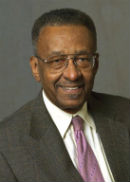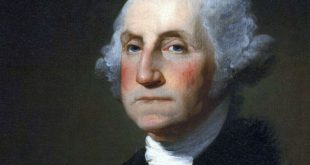So much of our reasoning about race is both emotional and faulty. In ordinary, as well as professional, conversation, we use terms such as discrimination, prejudice, racial preferences and racism interchangeably, as if they referred to the same behavior. We can avoid many pitfalls of misguided thinking about race by establishing operational definitions so as to not confuse one behavior with another.
Discrimination can be operationally defined as an act of choice. Our entire lives are spent choosing to do or not to do thousands of activities. Choosing requires non-choosing. When you chose to read this column, you discriminated against other possible uses of your time. When you chose a spouse, you discriminated against other people. When I chose Mrs. Williams, I systematically discriminated against other women. Much of it was racial. Namely, I discriminated against white women, Asian women, fat women and women with criminal backgrounds. In a word, I didn’t offer every woman an equal opportunity, and they didn’t offer me an equal opportunity.
One might be tempted to argue that racial discrimination in marriage is trivial and does not have important social consequences, but it does. When high-IQ and high-income people marry other high-IQ and high-income people, and to the extent there is a racial correlation between these characteristics, racial discrimination in mate selection enhances the inequality in the population’s intelligence and income distribution. There would be greater income equality if high-IQ and high-income people married low-IQ and low-income people. But I imagine that most people would be horrified by the suggestion of a mandate to require the same.
Prejudice is a perfectly useful term, but it is used improperly. Its Latin root is praejudicium — meaning prejudgment. Prejudice can be operationally defined as making decisions on the basis of incomplete information. Because the acquisition of information entails costs, we all seek to economize on information cost. Sometimes we use cheap-to-observe physical attributes as proxies for some other attribute more costlier to observe. The cheaply observed fact that a person is a male or female can serve as a proxy for an unobserved attribute such as strength, aggressiveness or speed in running.
In the late 1990s, a black taxi commissioner in Washington, D.C., warned cabbies against going into low-income black neighborhoods and picking up “dangerous-looking” passengers whom she described as young black males dressed a certain way. Some pizza deliverers in St. Louis who were black complained about delivering pizzas to black neighborhoods for fear of being assaulted or robbed. In 1993, the Rev. Jesse Jackson was reported as saying that he is relieved when he learns that youthful footsteps walking behind him at night are white and not black.
Here’s the question: Does the wariness of Washington’s predominantly black cabbies to pick up “dangerous-looking” black males or black pizza deliverers’ not wanting to deliver to some black neighborhoods or Rev. Jackson’s feeling a sense of relief when the youthful footsteps behind him are those of white youngsters instead of black say anything unambiguous about whether cabbies, pizza deliverers and Jackson like or dislike blacks? It’s a vital and often overlooked point — namely, that watching a person’s prejudicial (prejudging) behavior alone can tell us nothing unambiguous about that person’s racial tastes or preferences.
Consider policing. Suppose a chief of police is trying to capture culprits who break in to autos to steal electronic equipment. Suppose further that you see him focusing most of his investigative resources on young males between the ages of 15 and 25. He spends none of his investigative resources on females of any age and very few on men who are 40 or older. By watching his “profiling” behavior — prejudging behavior — would you conclude that he likes females and older males and dislikes males between the ages of 15 and 25? I think that it would take outright idiocy to reach such a conclusion. The police chief is simply playing the odds based on the evidence he has gathered through experience that breaking in to autos tends to be a young man’s fancy.
COPYRIGHT 2018 CREATORS.COM
Featured photo credit: Cliff from Arlington, Virginia, USA – Milwaukee Police Department Uploaded by AlbertHerring, CC BY 2.0, Wikimedia Commons
 Walter E. Williams is a professor of economics at George Mason University.
Walter E. Williams is a professor of economics at George Mason University.
The views expressed in opinion articles are solely those of the author and are not necessarily either shared or endorsed by Black Community News.
 Black Community News News and Commentary for Christians
Black Community News News and Commentary for Christians




As usual Dr. Williams, your argument is difficult to counter. I would add, however, that racial discrimination against African Americans continues to host perdurable manifestations based solely on the color of one’s skin. Jane Elliot’s old “Blue Eye” experiment with her students is a good example of my concern.